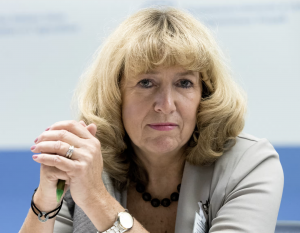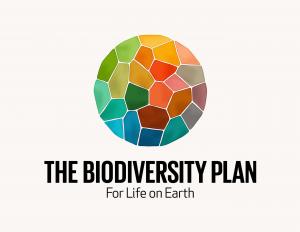
Astrid Schomaker of Germany assumes new role as Executive Secretary, UN Convention on Biological Diversity, Montreal

Astrid Schomaker of Germany has officially taken up her appointment as Executive Secretary of the UN Convention on Biological Diversity
Astrid Schomaker of Germany assumes new role as Executive Secretary, UN Convention on Biological Diversity, Montreal
Assuming the role ahead of the sixteenth meeting of the CBD’s 196 Parties (COP 16), Ms. Schomaker brings extensive experience in international relations, negotiations and global environmental policy-making, and deep knowledge of the global sustainable development agenda and multilateral environment agreements.
UN Secretary-General António Guterres made the appointment in April, extending his appreciation and gratitude to Acting Executive Secretary David Cooper of the United Kingdom, who now resumes his role as Deputy Executive Secretary.
Ms. Schomaker has led work on a variety of issues ranging from bilateral and multilateral relations to chemicals, oceans, and the water industry. Most recently, as Director for Green Diplomacy and Multilateralism with the European Commission in Brussels, she promoted a global transition to resource-efficient, low emission, nature-positive circular economies.
She also focused on increasing the EU's effectiveness in addressing international environmental challenges, strengthening multilateralism and international environmental governance, and working towards the full implementation of multilateral environment agreements, among other priorities.
Says Ms. Schomaker: “Securing the future of biodiversity means securing the future of humankind. I am humbled to be joining the efforts of the United Nations, and all Parties to the Convention to halt and reverse biodiversity loss. Our world is in desperate need of a global green transition and, while our individual paths may vary, our ambitions – the ambitions of the historic Kunming-Montreal Global Biodiversity Framework – must be the same.”
“I want to thank Mr. David Cooper for stepping in as Acting Executive Secretary and leading the CBD through a critical time following the adoption of the Framework in December 2022, a landmark agreement to which he contributed and continues to contribute so much.”
“Let me also express my enthusiasm to work with the government of Colombia, and in particular H. E. Susana Muhamad, our incoming president, to ensure that the outcomes of COP 16 accelerate action at all levels to implement the Convention on Biological Diversity.”
At the helm of the Secretariat of the world’s foremost Multilateral Environmental Agreement on biodiversity, Ms. Schomaker will work with Parties to translate their commitments into action at all levels. The four goals of the Global Biodiversity Framework—protect and restore, prosper with nature, share benefits fairly, and invest and collaborate for nature, shape the new UN Biodiversity Chief’s priorities.
COP 16 will take place from 21 October to 1 November 2024 in Cali, Colombia. By the time they meet in Cali, Parties to the Convention are expected to submit revised National Biodiversity Strategies and Action Plans (NBSAPs) and national targets that are aligned with The Biodiversity Plan.
At COP 16, Parties are expected to agree on a multilateral mechanism for the fair and equitable sharing of benefits from the use of Digital Sequence Information on genetic resources, including a potentially multi-billion-dollar global fund by which users of the information compensate sources of the genetic material. Preparatory negotiations on this decision will be held in Montreal in August of this year.
As part of her high-level advocacy role, Ms. Schomaker will also foster agreement among the Parties on a robust monitoring and reporting framework, and on securing the means of implementation for the Global Biodiversity Framework, including appropriate finance and coordinated action.
…………………………….
About the UN Convention on Biological Diversity (CBD)
Opened for signature in 1992 at the Earth Summit in Rio de Janeiro, and entering into force in December 1993, the CBD is an international treaty for the conservation of biodiversity, the sustainable use of the components of biodiversity and the equitable sharing of the benefits derived from the use of genetic resources.
With 196 Parties, the CBD has near universal participation among countries. The CBD seeks to address all threats to biodiversity and ecosystem services, including threats from climate change, through scientific assessments, the development of tools, incentives and processes, the transfer of technologies and good practices and the full and active involvement of relevant stakeholders including indigenous peoples and local communities, youth, women, NGOs, sub-national actors and the business community.
The Cartagena Protocol on Biosafety and the Nagoya Protocol on Access and Benefit-Sharing are supplementary agreements to the CBD. The Cartagena Protocol, which entered into force 11 September 2003, seeks to protect biodiversity from the potential risks posed by living modified organisms resulting from modern biotechnology. To date, 173 Parties have ratified the Cartagena Protocol. The Nagoya Protocol aims at sharing the benefits arising from the utilization of genetic resources in a fair and equitable way, including by appropriate access to genetic resources and by appropriate transfer of relevant technologies. Entering into force on 12 October 2014, it has been ratified by 141 Parties.
More information: https://www.cbd.int
David Ainsworth, Information Officer, david.ainsworth@un.org
Jihed Ghannem, Communications Officer, ghannem@un.org
Franca D’Amico, Programme Assistant, franca.damico@un.org
Terry Collins
Terry Collins & Assoc. inc
+1 416-878-8712
email us here
Visit us on social media:
Facebook
X
LinkedIn
Instagram
YouTube
Other
In Oct. at COP 16 in Colombia, nations will review progress against The Kunming-Montreal Global Biodiversity Framework (The Biodiversity Plan), adopted in 2022.
EIN Presswire does not exercise editorial control over third-party content provided, uploaded, published, or distributed by users of EIN Presswire. We are a distributor, not a publisher, of 3rd party content. Such content may contain the views, opinions, statements, offers, and other material of the respective users, suppliers, participants, or authors.



